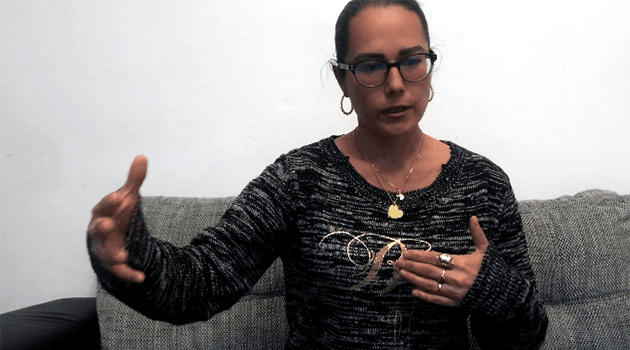In the V-4, COVID-19 pandemic exploited for ultra-right hoaxes, calls for authoritarianism

During the first wave of the novel coronavirus pandemic this year, attacks on the European Union and the West were the main subject of the entire ultra-right scene in Central Europe, including in the Czech Republic. Such radicals made no secret of their admiration for the authoritarian regimes in China and Russia when spreading their propaganda.
The critique of the EU resonated, for example, in the Czech Republic among the followers of the “Freedom and Direct Democracy” (SPD) party, while in Hungary, traditional invective against migrants in the context of the pandemic found an audience and unfounded, conspiratorial concerns about vaccines predominated in Poland. The EU was described by right-wing radicals as an incompetent, weak organization incapable of providing aid to its Member States.
The conclusions of a research project into the impact of the COVID-19 pandemic on far-right propaganda efforts in the V4 reveal that favorite theses among the ultra-right included declaring that the West and the era of its alleged hegemony is over and that democratic systems are coming to an end. The role of nation-states has also been emphasized.
Along with invective against the EU, eastern powers such as China and Russia have been highlighted as having allegedly managed to cope with the pandemic, according to the ultra-right scene. The aid that both countries delivered to Europe has been celebrated and their authoritarian regimes have been praised as effective in combating the pandemic.
Poles fascinated by vaccine conspiracies
Another customary allegation of the ultra-right has been that the pandemic was artificially created as an instrument of global control, and those allegedly behind the virus are said to be Jewish people, the pharmaceutical industry, billionaires like Bill Gates or George Soros, banks and financial groups (or even the Chinese Communist Party). The alleged efforts by such groups are said to be meant to lead toward their governing the world, “resetting” the economy, or implanting microchips into people’s bodies while injecting them with the vaccine in order to enslave populations.
The ultra-right had already concentrated on the issue of vaccinations during the first wave of the pandemic, a subject that resonated the most in Poland. The pandemic has also served as a pretext for verbal assaults against migrants.
In addition to the customary accusations that immigrants are unable to adapt, that they commit crimes and terrorism, that they strain welfare systems, etc., migrants are accused of having brought the dangerous virus to Europe. Calls have also been made to close borders until the pandemic ends.
While in Hungary such theses were declared by the governing Fidesz party, the political entities voicing them in the Czech Republic and Slovakia were either not seated in the national legislature at all, or are seated but in opposition. Associating the pandemic with migrants was just a fringe matter in Poland.
Kotleba and microchips
All V4 countries have also seen claims of relativization about the pandemic, alleging either that it does not exist at all, or that it is entirely a “false flag” intelligence operation. The fatality rate of COVID-19 has been belittled by making misleading comparisons between it and other diseases.
According to the far-right radicals, COVID-19 should not be considered a serious threat or called a pandemic. During the first wave in Hungary, the Government itself also took advantage of the pandemic as a subject as part of its ideological battles with the opposition.
The Hungarian Government called for national unity during the pandemic “beneath the wings” of Prime Minister Orbán’s Fidesz party, while accusing opposition parties of being “against the nation”. The Orbán administration’s declarations in that vein were also supported by far-right radical groups and their representatives.
The rhetoric of the ultra-right in relation to the pandemic was similar throughout the V4. However, its impacts were different, both because of the different positions and significance of the groups involved in each country, and due to whether those groups are seated in a national legislature or not.
The subject matter was also adapted to local conditions in each V4 state. While an association between migrants and the pandemic was made in Hungary, which had been affected by the migration crisis of 2015, in the more conservative and religious country of Poland, which has not been much affected by migration, concerns about vaccinations leading to a subsequent alleged enslavement of the population were what took hold.
The difference between the Czech Republic and the Slovak Republic in terms of ultra-right subject matter related to COVID-19 was influenced by the difference between Tomio Okamura’s SPD party in the Czech Republic and Marian Kotleba‘s “People’s Party Our Slovakia” (LSNS). While Okamura concentrated more on a critique of the EU without touching on the more brutal conspiracy theories, Kotleba espouses the thesis about microchips allegedly being implanted through vaccination, or alleges that banks and financial groups are behind the pandemic.
This article was produced as part of a research project on the impacts of the COVID-19 pandemic on the ultra-right scene in the Visegrad 4 countries. The project was led by the Hungarian think-tank Political Capital.
Research for the project about the Czech Republic was produced by the Institute for Policy and Society (Institut pro politiku a společnost). The project was supported by the Friedrich Naumann Foundation for Freedom.
First published in Czech for the Institute of Independent Journalism (Ústav nezávislé žurnalistiky).
